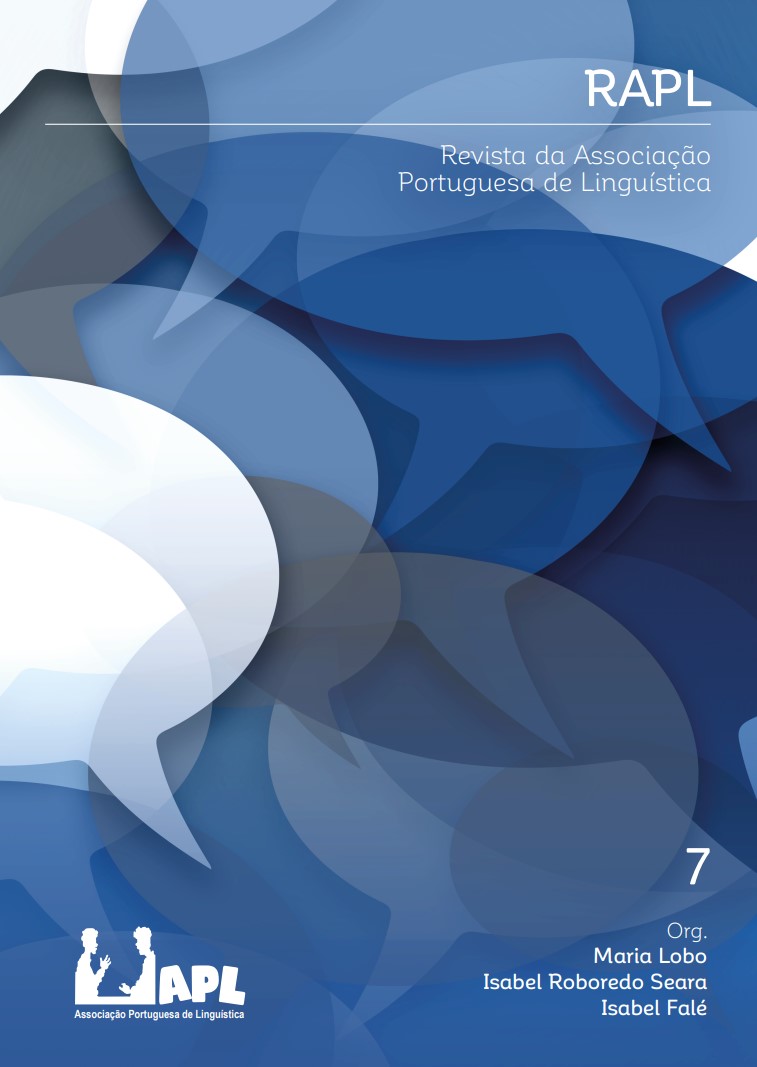O simbolismo sonoro é modulado pela experiência linguística
DOI:
https://doi.org/10.26334/2183-9077/rapln7ano2020a9Palavras-chave:
simbolismo sonoro, efeito bouba-kiki, legalidade fonotática, representações fonológicas, Português EuropeuResumo
The bouba-kiki effect, or the symbolic association between certain speech sounds and rounded or angular shapes, is widely thought to be universal. However, two studies have failed to replicate this effect with neurotypical participants in the classical paradigm, one conducted in Papua New Guinea (Ross & Rogers, 1975), and the other conducted in Nepal (Styles & Gawne, 2017). As both experiments employed auditory stimuli inconsistent with the sound structure of the respective native language, Styles and Gawne (2017) proposed that pseudoword legality is a prerequisite for sound-symbolic associations to form. In this study, we conducted the first experimental test of this hypothesis, by assessing participants’ performance on the bouba-kiki task as a function of pseudoword phonotactic legality. Our results indicate that phonotactic violations may disrupt the bouba-kiki effect, albeit only when they cause the speech stimuli to be perceived as significantly strange (not “word-like”). We thus conclude that sound symbolism fails whenever phonotactic violations prevent the assemblance of the phonological representations of the target pseudowords.
Downloads
Downloads
Publicado
Como Citar
Edição
Secção
Licença
Direitos de Autor (c) 2020 João Delgado, Rodrigo Pereira, Miguel F. Ferreira, António Farinha-Fernandes, José C. Guerreiro, Bruno Faustino, Miguel Domingues, Paulo Ventura

Este trabalho encontra-se publicado com a Licença Internacional Creative Commons Atribuição-NãoComercial-CompartilhaIgual 4.0.
Os autores mantêm os direitos autorais e concedem à revista o direito de primeira publicação. Os artigos estão simultaneamente licenciados sob a Creative Commons Attribution License que permite a partilha do trabalho com reconhecimento da sua autoria e da publicação inicial nesta revista.
Os autores têm autorização para disponibilizar a versão do texto publicada na RAPL em repositórios institucionais ou outras plataformas de distribuição de trabalhos académicos (p.ex. ResearchGate).





